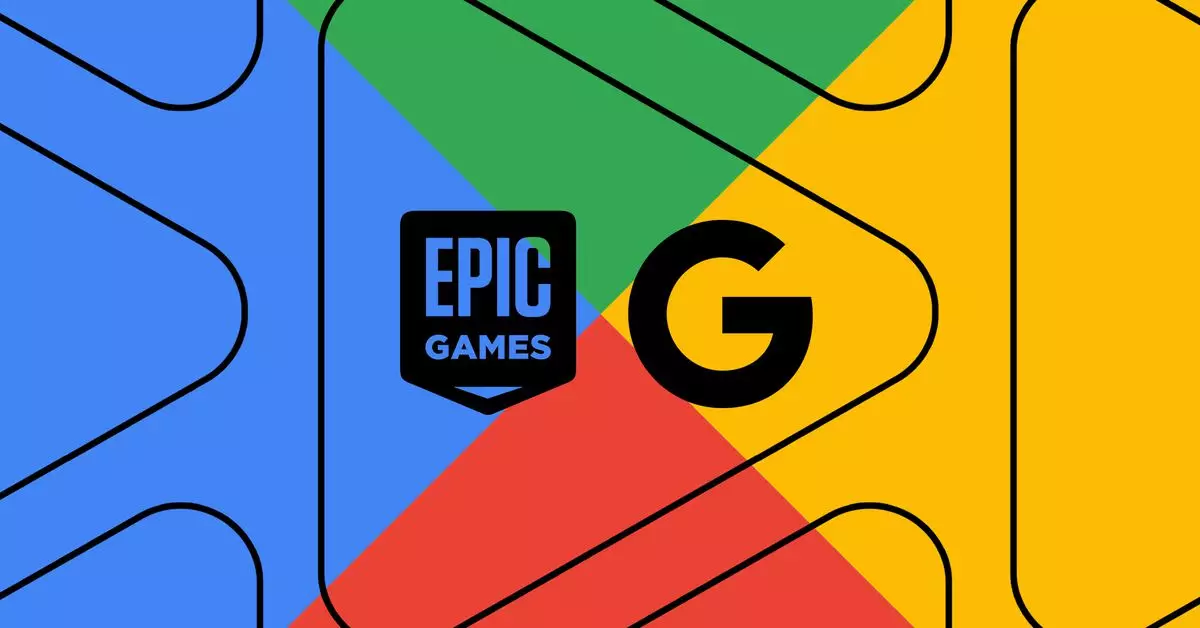The tech industry is witnessing a seismic shift, a transformation that could redefine the way app stores operate. Recent judicial intervention in the Epic v. Google case has compelled the tech giant to restructure its long-standing practices regarding its app store, Google Play. This ruling, delivered by Judge James Donato, signifies a fundamental challenge to what many have criticized as Google’s illegal monopoly in the distribution of apps for Android devices.
At the core of this legal battle is Epic Games, a prominent game developer known for its flagship product, Fortnite. In a bold move, Epic initiated a legal confrontation against both Google and Apple in August 2020, seeking to dismantle the 30% commission imposed by these tech titans on in-app purchases. The lawsuit against Google has culminated in a decisive ruling that forces the company to permit rival app stores and payment systems within its ecosystem, a paradigm shift that could reverberate throughout the tech industry.
Judge Donato’s final ruling lays a strong foundation for competition within the Google Play store. Effective from November 1, 2024, and continuing until November 1, 2027, the ruling mandates a slew of reforms. Google is now obliged to stop enforcing its payment systems exclusively and allow developers to promote alternative payment methods, effectively empowering them. This reformation aims to foster a more competitive environment that could potentially benefit both developers and consumers alike by offering more choices and better pricing structures.
The ruling is not merely a matter of allowing more players into the game; it also directly confronts Google’s anticompetitive behaviors. Judge Donato prohibited Google from engaging in certain practices aimed at monopolizing app distribution. These include restrictions against sharing revenue with entities distributing Android apps and making exclusive deals with developers that hinder competition. Such measures are designed to level the playing field, giving smaller developers a fair chance to thrive without being overshadowed by the massive resources of Google.
Furthermore, the ruling allows developers to set their own prices and navigate their marketing strategies independently of Google’s intrusive guidelines. The implications of this are profound; developers can now explore innovative pricing models that could lead to increased consumer engagement and sales.
The ramifications of this ruling extend beyond Epic and Google, affecting the entire app economy. By opening up the Google Play store to competition, the ruling fosters an ecosystem where a range of third-party app stores can exist. This could lead to enhanced diversity in app offerings and a more vibrant marketplace. As developers adapt to this new landscape, we may see an influx of creative and innovative applications that were previously stifled under Google’s strict control.
Moreover, consumers may benefit from lower prices and improved features as competition increases. Just as we have witnessed in other tech sectors when monopoly practices have been challenged, such as with streaming services or e-commerce, the introduction of competition generally leads to better choices for consumers.
Despite the clarity of the ruling, Google’s path forward remains fraught with challenges. The company has already signaled its intention to appeal the decision, echoing the strategy employed by Apple in a similar legal battle. While awaiting the outcome of legal manoeuvring, Google’s management faces the daunting task of restructuring its business practices to comply with the ruling.
The injunction allows Google to maintain a degree of oversight regarding safety and quality standards within the app store. However, the necessity for a balance between oversight and competition will be a delicate dance. Google must ensure that its policing measures do not unintentionally stifle the very competition the ruling seeks to promote.
As the dust settles on this landmark ruling, it becomes evident that the digital landscape is evolving. The Epic v. Google case symbolizes not only a victory for developers advocating for fair practices but also underscores the necessity for continual scrutiny of monopolistic behaviors in technology. The resulting changes could catalyze significant effects far beyond the confines of Google Play or the gaming industry, possibly reshaping the future of digital commerce altogether.
The ruling serves as an essential reminder that the power dynamics in the tech world are not immutable. As the momentum toward greater competition gains traction, developers and consumers alike may find themselves at the precipice of a new era of innovation and market equity. The upcoming years will be critical in observing how these changes unfold in practice, laying the groundwork for a fairer app ecosystem.

